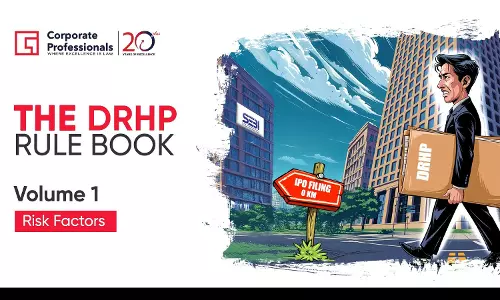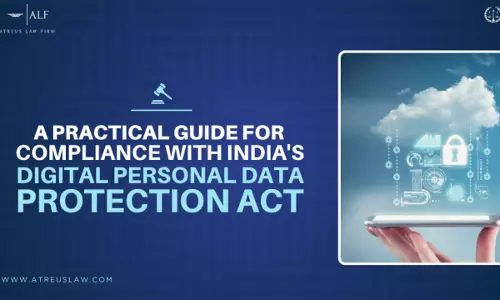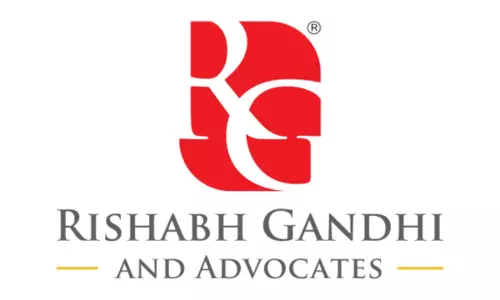Law Firm Articles
The DRHP Rulebook
There exists a document in the Indian capital markets that precedes every bell rung on Dalal Street, every ticker update, every front-page financial headline, the Draft Red Herring Prospectus (“DRHP”). A DRHP is the first thing you hand the Regulator, i.e. Securities and Exchange Board of India (“SEBI”) or an Exchange, which tends to be a voluminous, information-laden, and data-filled document. It is not a mere disclosure document; it is the crucible where vision is tested against...
Green Crimes In India: A Step Towards Safeguarding Our Environment
Today, we are living in a world where environmental challenges have outgrown the parameters, we can measure them in. It is time we start to penalize actions which increases our plight of the aftermath of environmental degradation. Therefore, for the starters, we should regard these actions which harm the environment as “crimes” against environment or rather – “Green Crimes”. Any action which is considered as the “act against society” is termed as a crime which is the main psychology behind...
Cross-Border Counsel: Decoding The 2025 Amendment To The Bar Council Rules On Practice By Foreign Law Firms & Lawyers In India
In March 2023, the Bar Council of India (“BCI”) notified the BCI Rules for Registration and Regulation of Foreign Lawyers and Foreign Law Firms in India, 2022 (“2022 Rules”). The 2022 Rules opened the door for foreign lawyers and foreign law firms to practice foreign and international laws in India in non-litigious matters including legal advisory, corporate transactions and international commercial arbitration. Vehement opposition by Indian lawyers, law firms and State Bar Councils alike,...
Governing Laws Vis-À-Vis Arbitration
The Supreme Court recently in Disortho S.A.S v. Meril Life Insurance[1], crystallised the principles for determining the law governing arbitration agreements. In said case, certain disputes arose amongst Parties in respect of an International Exclusive Distribution Agreement (“Agreement”) and consequently, a petition was filed under Section 11(6) of the Arbitration and Conciliation Act, 1996 (“Arbitration Act”), for appointment of an arbitral panel in terms of the Agreement. The said petition...
How Business Transfer Agreements Can Cost Big On Stamp Duty
Imagine signing a single document, a Business Transfer Agreement (BTA) only to discover, it could cost you a fortune in stamp duty or save you same, depending on a few carefully chosen words. In India, where state to state stamp duty laws differ greatly, the line separating a basic agreement from a full-fledged conveyance deed is quite narrow.Defining “Conveyance” under Stamp LawOften shrouded in ambiguity, the stamp duty laws in India, where a single document, such as a Business Transfer...
AI Evolution: Legal Quandaries
Artificial intelligence (“AI”) has become ubiquitous, perhaps even workaday in certain spheres and it is undeniable that it is transforming a few sectors. Through inter alia algorithms and deep learning AI is becoming interconnected, predictive, adaptive, emergent and autonomous. It is fascinating that responsibility, ethics and transparency within the AI ecosystem are being enhanced without compromising innovation. Whilst AI software, applications and technologies become increasingly integrated...
Acidity Regulators In India: A Legal And Health Perspective
Acidity regulators are amongst the most common yet overlooked ingredients in our daily food. From bread and biscuits to jams and beverages, these additives control pH levels, enhance flavours, and extend shelf life. But what are the laws which govern their use in India? How do such regulators balance consumer safety with commercial needs? There are growing concerns about food additives. The regulatory framework has also evolved in order to address such concerns, especially as...
Strengthening Ties: Singapore Leads The Way For Future Indian Insolvency Cases
This is the story of the first Indian insolvency proceeding to be granted recognition by the Singapore Court under the UNCITRAL Model Law on Cross-Border Insolvency (“Model Law”). This recognition, besides facilitating the challenging cross-border asset recovery, has also opened the doors for deeper insolvency cooperation between India and Singapore.What prompted the Resolution Professional to knock on the doors of the Singapore Court and what does this decision mean for Indian businesses that...
The U.S. Tariff Regime Under Trump: April 2025: Snapshot And Strategic Overview
With frequent Executive Orders issued by President Trump, keeping a track of the current U.S. tariff regime has become increasingly challenging. The situation is fast changing given the recent proclamations and new tariff measures.The US Tariff Policy seeks to redress the trade deficit which exists for most countries around the world. The idea is to homeshore jobs and revitalize domestic manufacturing. President Trump has adopted a negotiation strategy designed to exert maximum pressure on...
'Discourage Litigation, Persuade Your Neighbours To Compromise Whenever You Can'
'Discourage Litigation. Persuade Your Neighbours To Compromise Whenever You Can' -These words quite often echo in various advocate robing rooms, court corridors and stuffy conference rooms. The words are those of Abraham Lincoln and they remain as cogent and compelling today as they were years ago. For centuries, lawyers in the UK have leaned towards such philosophy when considering the strengths and weakness of potential litigation. Settlements, resolution and finding a half-way...
A Practical Guide For Compliance With India's Digital Personal Data Protection Act & Rules
Over the last decade, the conversation around data privacy in India has gone from hushed boardroom corners to dinner table debates. With more of our lives moving online—from shopping and banking to healthcare and education—the digital footprints we leave behind have grown deeper and more revealing. Against this backdrop, India's new Digital Personal Data Protection Act, 2023 (“DPDP Act”) (& Rules) marks a critical shift in how our personal information is to be handled, protected, and...
Consent Asymmetry And Synthetic Neutrality In Arbitration: When AI Tilts The Scales Of Justice
The Illusion of Neutrality in Digital Systems Picture an AI ruling on your dispute—fast, flawless, and utterly opaque. Is this justice, or a high-tech illusion? Artificial intelligence (AI) tools are increasingly used in arAetbitration to streamline case analysis, rank submissions, or generate summaries. These systems promise objectivity, speed, and cost-efficiency. But beneath their polished interfaces lie systemic risks. Can we trust machines to be neutral? And what happens when...













